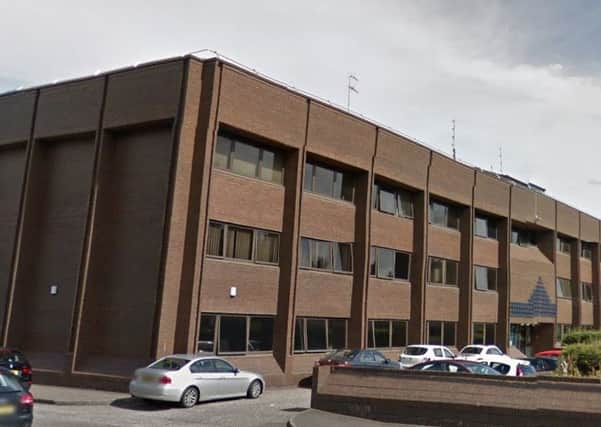Police custody death could have been prevented


Police Scotland have been criticised over their treatment of Ian Loudon, 39, who was locked up after his family called police to say he had been acting “erratically”.
The officers who went to his family home in Bailleston, Glasgow, to detain him had initially decided to take Mr Loudon, who had taken valium and methadone, to hospital.
Advertisement
Hide AdAdvertisement
Hide AdHowever, they received instructions to bring him into custody instead.
He was given a check-up which lasted less than two minutes at London Road police station by a police casualty surgeon, Dr Andrew McCall, and was deemed fit to be detained.
However, he was found unresponsive in an observation cell a few hours later. The cause of his death was bronchopneumonia.
Following a fatal accident inquiry at Glasgow Sheriff Court, Sheriff Andrew Normand has ruled Mr Loudon’s death in November, 2013, could have been avoided.
He said: “The medical evidence in this case in my view clearly supports a conclusion that there was a real and lively possibility that Mr Loudon’s death may have been avoided if he had been taken to hospital from police custody soon after being arrested or during the earlier part of his detention on the night in question.
“In my view it would have been reasonable for the police to have followed their original plan and taken Mr Loudon to hospital.
“On my view of the evidence it is reasonable to conclude that Mr Loudon may have been unwell, and not just intoxicated, at the time of Dr McCall’s examination, and that an appropriate and adequate examination may have revealed that.
“Had Dr McCall discovered that Mr Loudon was unwell it is clear from his evidence that he would have directed the police to take him to hospital.”
Advertisement
Hide AdAdvertisement
Hide AdSheriff Norman criticised two custody officers who failed to report they had found Mr Loudon slumped in his cell three hours before an ambulance was called.
A subsequent cell check was not carried out despite it being recorded as having taken place.
Tests carried out after his death showed Mr Loudon had the lowest blood sugar levels ever seen by medics which could have caused him to appear intoxicated.
At the FAI, the A&E doctor who tried to revive him when he was eventually rushed to hospital criticised the short length of time spent examining him at the station.
Dr Richard Stevenson said he would have been “surprised” if Mr Loudon had died had he been taken to hospital instead of being locked up.
Chief Superintendent Garry McEwan, of Police Scotland’s custody division, said: “Police Scotland fully acknowledges and accepts the determinations made by Sheriff Normand following the Fatal Accident Inquiry into the death of Ian Loudon.
“In November 2013 Mr Loudon tragically died whilst in police custody and my sincere condolences remain with his family.
“As indicated by Sheriff Normand, both Police staff and officers within Police Scotland and the Police Casualty Surgeon had opportunities to seek further medical attention for Mr Loudon which were not taken.
Advertisement
Hide AdAdvertisement
Hide Ad“Subsequent to this incident, processes have been put into place to enhance the recording and highlighting of concerns raised from visits to custodies which were positively commented on by Sheriff Normand. This system of Prisoner Contact Records has been introduced across all custody centres in Scotland and staff have received guidance in its use.”